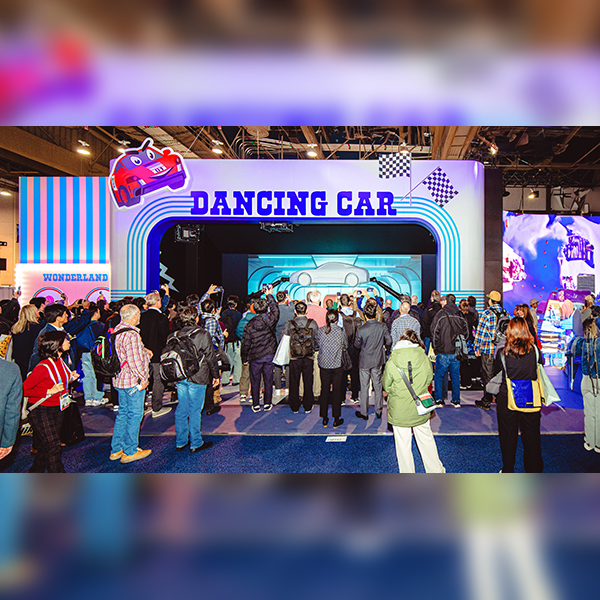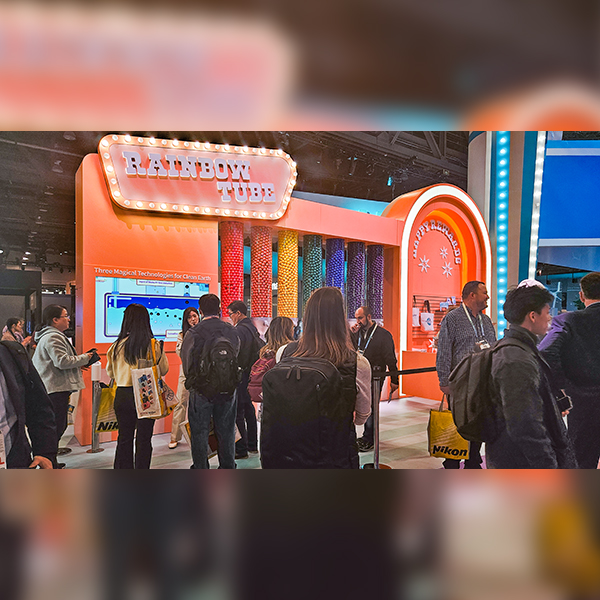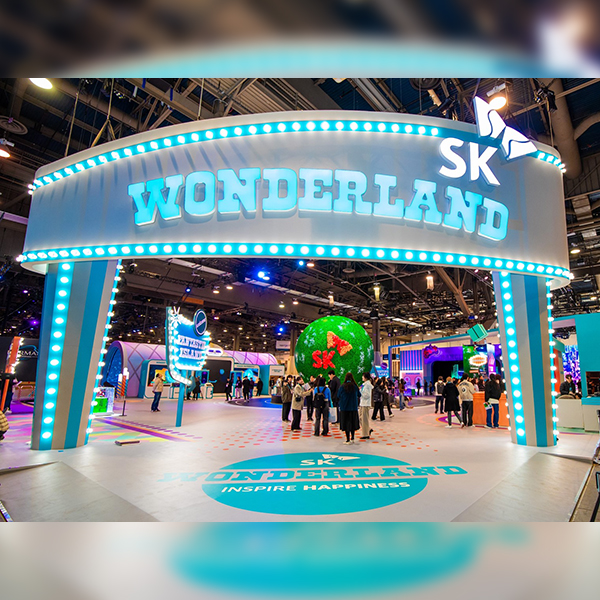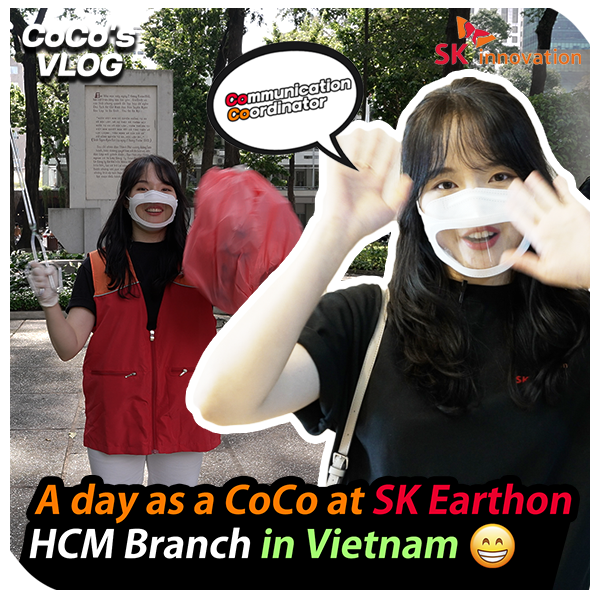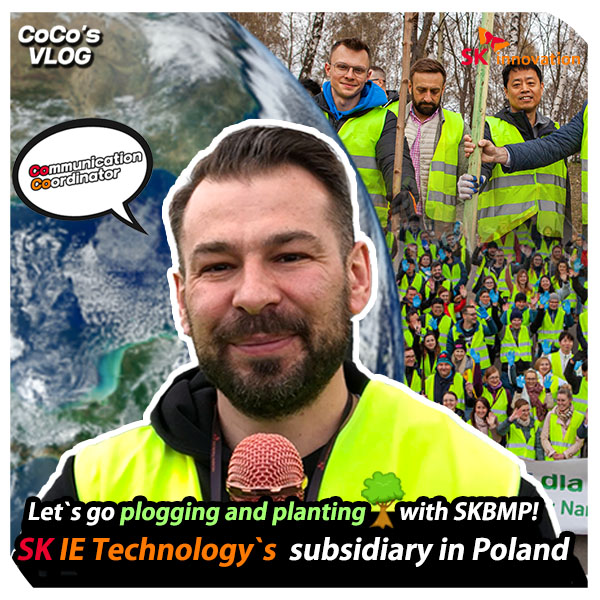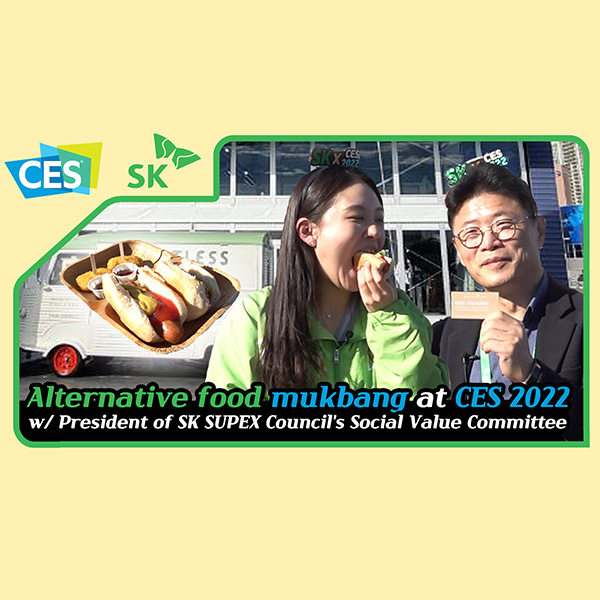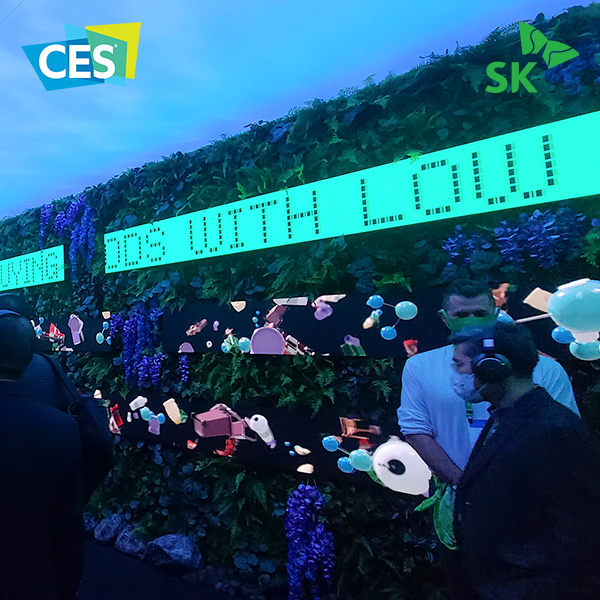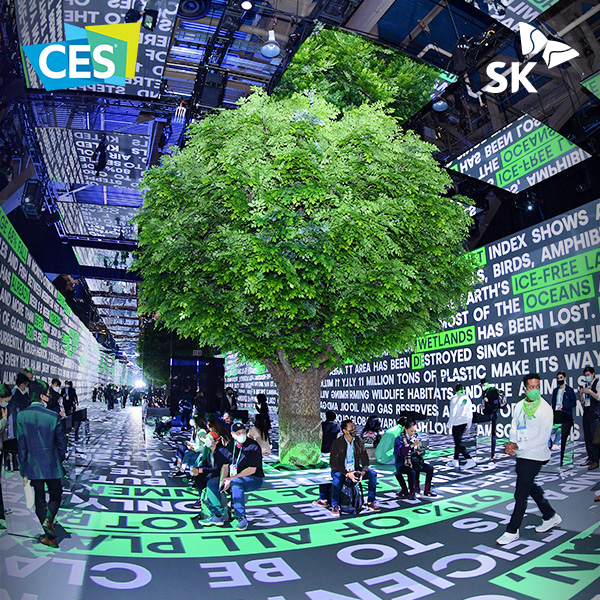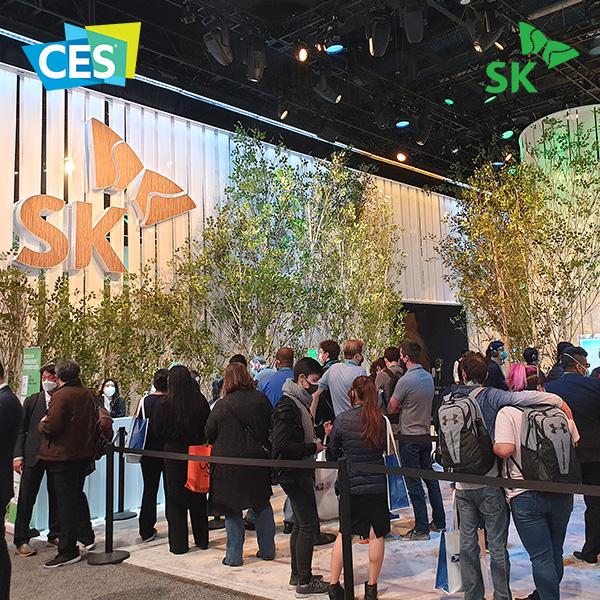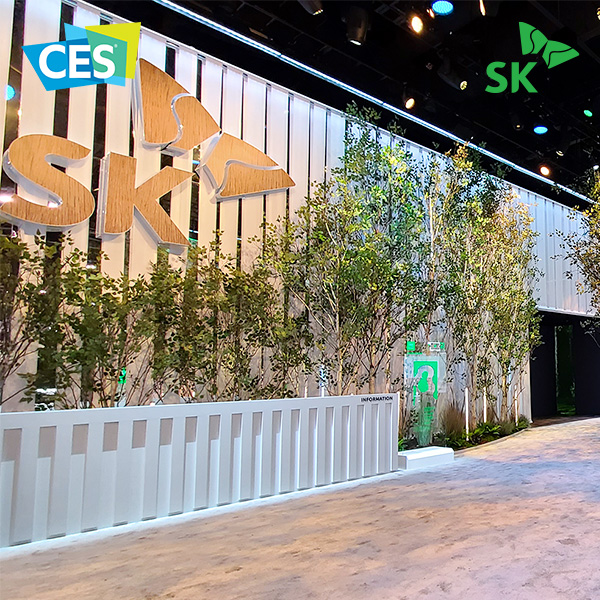 On-site Updates
On-site Updates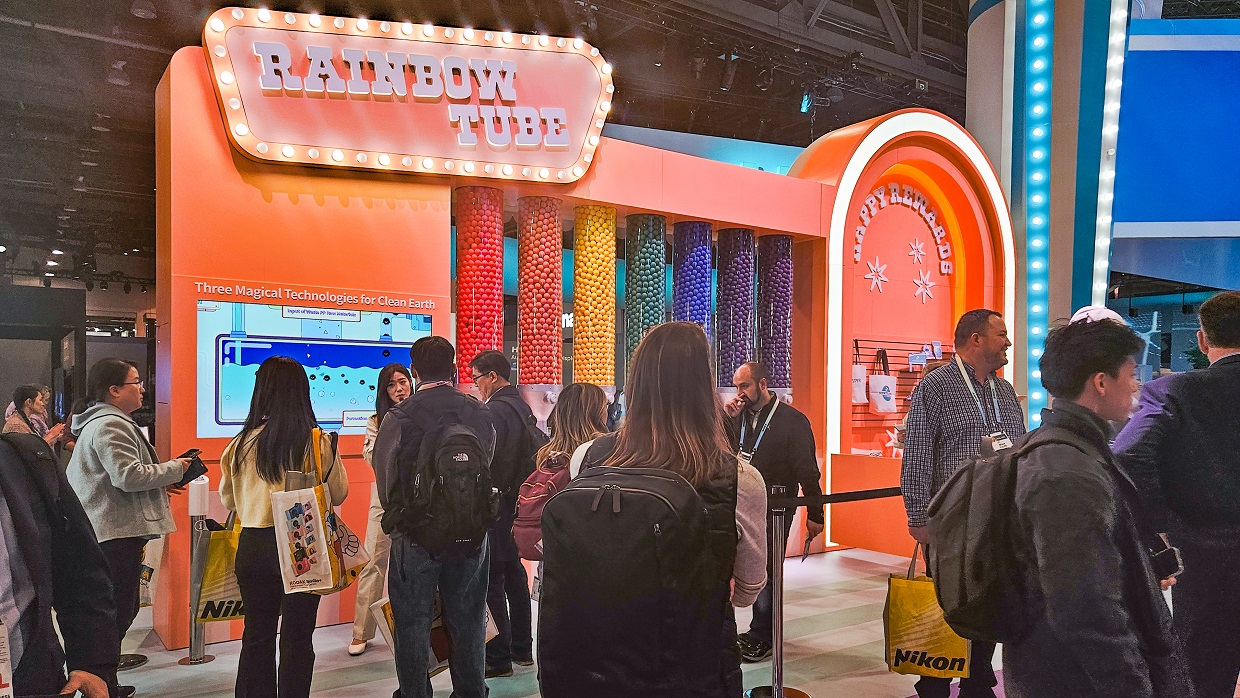
CES 2024 visitors are looking around Rainbow Tube, an attraction of SK Wonderland.
The world we live in is overwhelmingly plastic. We all love the convenience of plastics, but we also see the acceleration in problems they create in everyday life.
Giving up plastics completely is an unlikely dream, at least in the near future. Therefore, SK Innovation and its subsidiaries, especially SK Geo Centric, have set out to do the next best thing – reinvent the entire plastic value chain so that the material is more eco-friendly, safer for human use, and fully recyclable and reusable. The company is pioneering technologies that collectively promise to deliver a circular plastics ecosystem.
| A glimpse into SK Wonderland
At this year’s Consumer Electronics Show (CES) in Las Vegas, Nevada, attendees could experience the happy daily life in SK Wonderland, a Net Zero world created with SK and Friends’ core technologies.
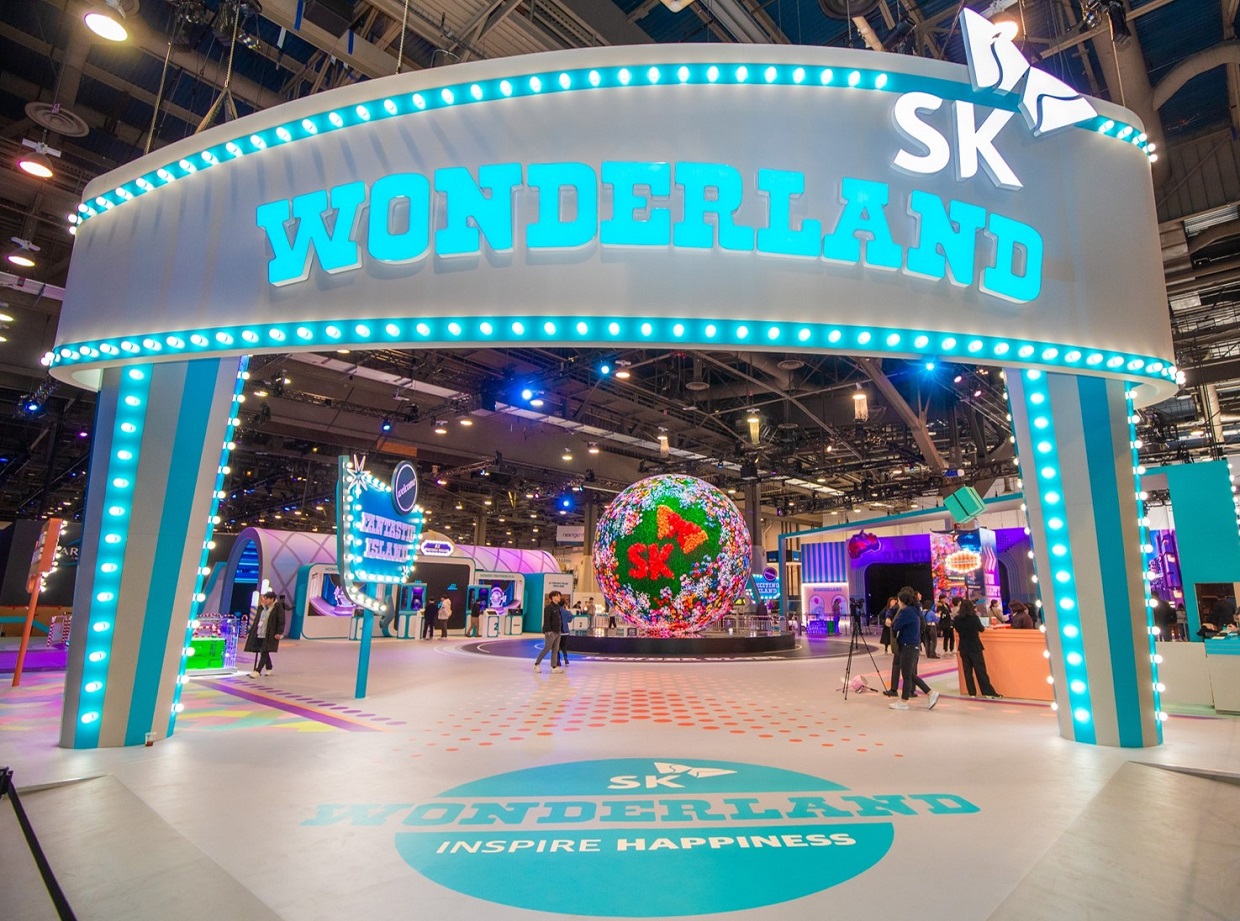
SK’s booth at CES 2024, SK Wonderland
As we were both curious about this Net Zero world, we decided to jump into the rabbit hole and wander around SK Wonderland. There were three zones that showcased their innovative technologies. Among them, Sweet Island was the zone that we had the most interest in.
We went on a journey through the Rainbow Tube, the main attraction of Sweet Island, to witness firsthand how SK Geo Centric is revolutionizing the treatment of waste plastics. These materials, which traditionally end up in landfills or are incinerated, are being transformed by SK Geo Centric and its partners into valuable resources.
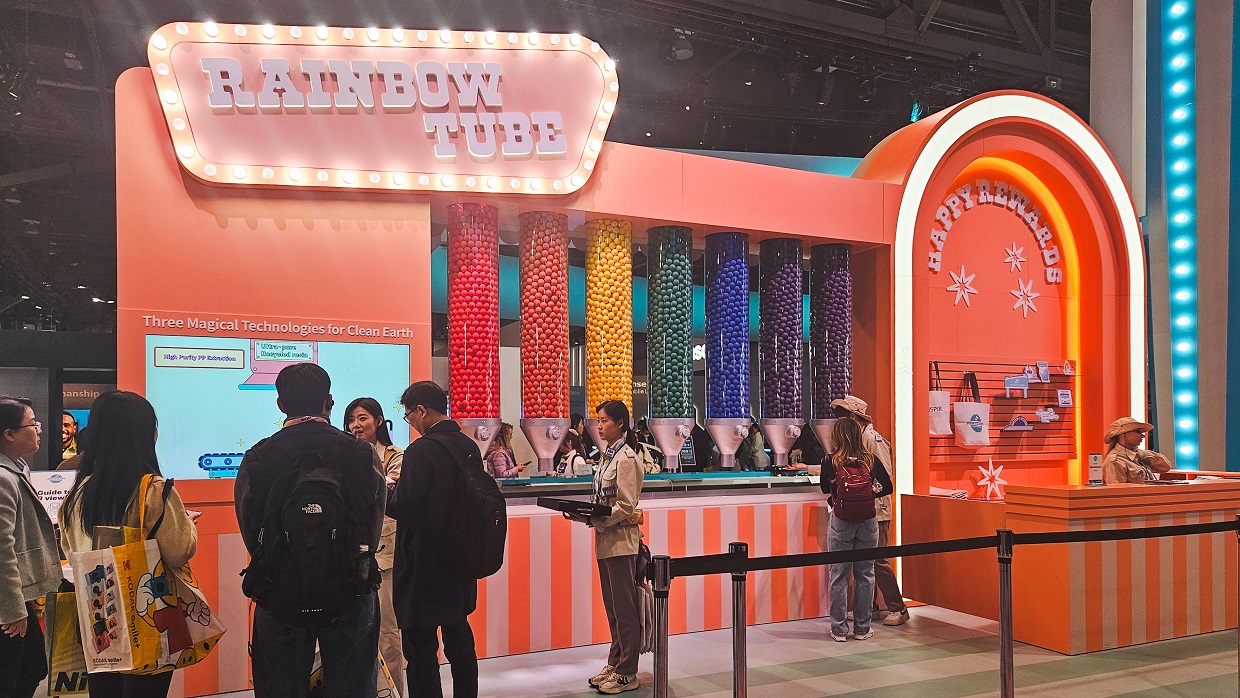
CES 2024 visitors are looking around Rainbow Tube, an attraction of SK Wonderland.
The transformation is achieved through advanced plastic recycling technologies. SK Geo Centric is employing innovative processes that break down the complex polymers in plastics back into their simpler molecular components. The resulting resources can then be reused as raw materials for creating new plastic products, effectively closing the recycling loop and bringing us closer to a sustainable future.
| Challenges in Recycling Plastics
Before attending CES, we began to explore what a circular economy for plastics really means, and how we can achieve it.
We are surrounded by single-use plastics in our daily coffee runs, snacks, lunches, and takeout. Even our clothes are often made from polyester, a plastic polymer.
But there’s a simple solution, right? We just have to start recycling the plastics we use.
Unfortunately, no. It’s not that simple. A lot of the plastic we recycle still ends up in landfills.
This is because plastic recycling is more costly and energy-intensive than creating plastic from raw materials, contributing to the low recycling rates. The sheer diversity of plastic types, compounded by the lack of standardized recycling processes, exacerbates the challenge.
Additionally, while many organizations recognize the importance of sustainability, many issues hinder their progress toward adopting greener practices.
Specifically, the challenges in eliminating plastics are deeply rooted in their fundamental role in industrial settings due to their convenience, cost-effectiveness, and durability. Plastics’ versatility and affordability are crucial across numerous industries, rendering a total phase-out currently unfeasible. Instead, companies must work toward a more carbon-neutral approach, rather than a complete phase-out.
The durability of plastics, although advantageous for longevity, leads to significant environmental issues due to their non-biodegradable nature. This creates a dilemma where the very properties that make plastics valuable also contribute to environmental risk.
The reliance on plastics is critical in sectors like healthcare and automotive complicates efforts to find viable alternatives, underscoring the need for balanced solutions.
The creation of a circular economy for plastics can address the demand for this versatile and critical material, while still ensuring that it does not create harmful environmental waste.
| A Circular Economy for Plastics
After watching a short video on recycling at Sweet Island, we learned more about the three advanced recycling technologies. Advanced recycling decomposes plastic waste through chemical processes that recycle it into “new” raw materials or polymers that can then be reused in manufacturing. It creates a more viable circular, repeatable recycling process than mechanical recycling, but it requires a large investment from companies to start and maintain.
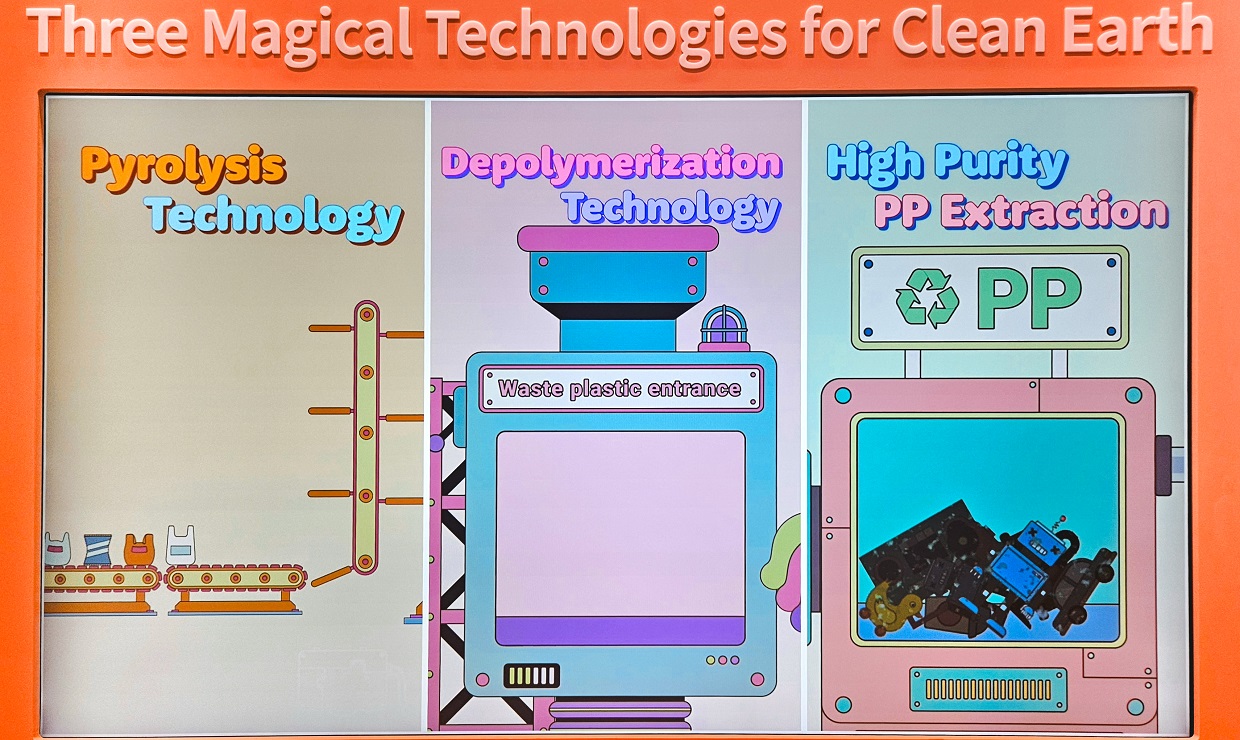
The three advanced recycling technologies which introduced by Rainbow Tube
As environmental consciousness becomes a driving force in consumer behavior and corporate reputation, global companies must work to overcome challenges to become more eco-friendly.
Overcoming these hurdles requires a multifaceted approach, including collaboration with stakeholders, investment in innovative technologies, and a commitment to transparency.
Creating a circular economy for plastics can reconcile the demand for this versatile material with environmental responsibilities. The pursuit of this approach emphasizes reducing waste through recycling and redesigning products for better lifecycle management, thereby ensuring plastics serve their purpose while reducing detrimental environmental impacts.
| SK Sets the Stage for a Sustainable Future
SK Geo Centric has made strides in its efforts to sustainably combat the challenges that plastic recycling poses, and innovating a more sustainable future.
Most notably, SK Geo Centric’s groundbreaking ARC (Advanced Recycling Cluster), the world’s first integrated waste plastic recycling complex in Ulsan, Korea, truly marks a monumental step in the advancement of the country’s circular economy. We found this project not just innovative but deeply inspiring, as it demonstrates a bold commitment to environmental sustainability on a massive scale and can serve as a ‘proof of concept’ for others.
The project’s anticipated significant economic impact on the region and the entire country is testament to how environmental initiatives can also be powerful economic drivers. With the capacity to annually transform 320,000 tons of discarded waste plastic into new recycled materials by the end of 2025, SK Geo Centric’s initiative illustrates a practical and impactful approach to carbon reduction.
The Ulsan ARC leverages advanced technologies such as pyrolysis, high-purity polypropylene (PP) extraction, and depolymerization. By integrating these state-of-the-art technologies at one location, the facility efficiently processes various plastics and polymers. This integration is significant in overcoming one of the most challenging aspects of traditional recycling – the labor-intensive and often inefficient process of manually sorting plastics. Instead, it transforms plastic waste into valuable materials, setting a new benchmark in recycling efficiency and effectiveness.

The three advanced recycling technologies which introduced by Rainbow Tube
| A Bright Outlook
It was exciting to see how consumers and businesses alike are aligned in the global vision to create a carbon-neutral future.
Witnessing SK Wonderland at CES with others was truly an eye-opening experience. The shared excitement and optimism about SK Geo Centric’s new approach to recycling plastics were evident by the thoughtful expressions of others.
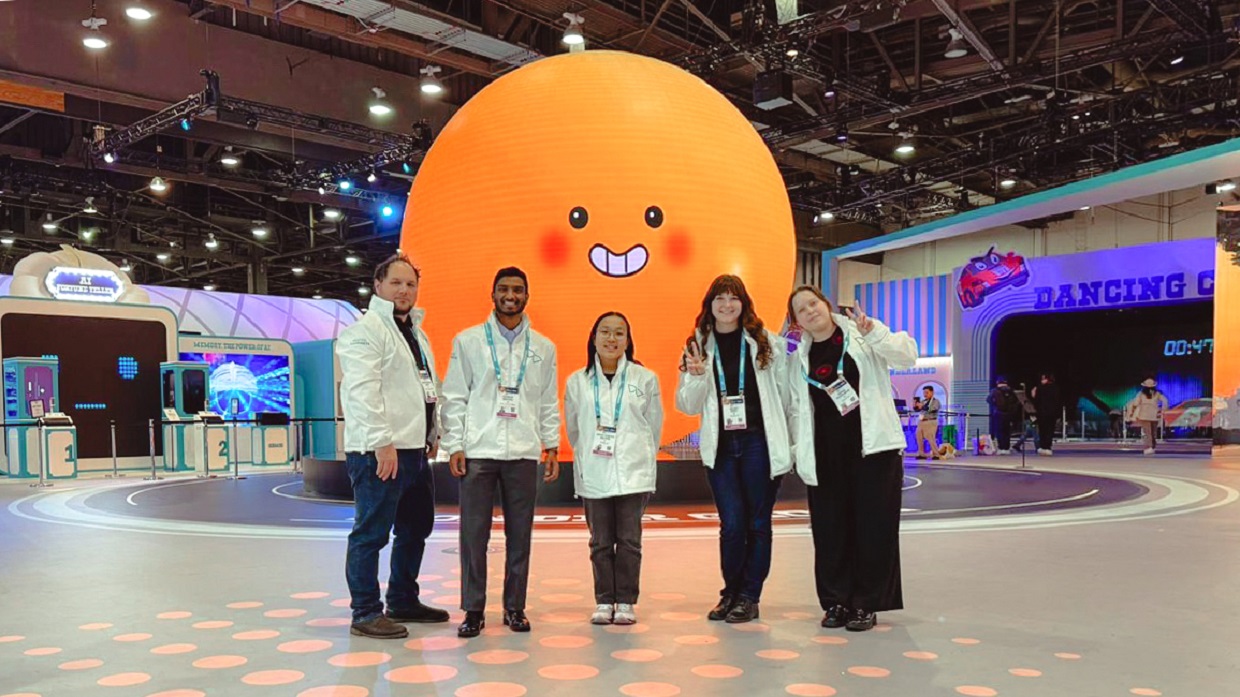
SK Innovation’s young ambassadors are taking a commemorative photo in front of the Wonder Globe at SK Wonderland, SK’s booth.
Experiencing CES and participating as an ambassador for SK Innovation, we learned to have more than just a mere appreciation of SK Geo Centric and partners’ technological advancements and their efforts. Its work reflects a shared vision among the global community — a vision where technological advancement aligns seamlessly with societal and environmental responsibility.
It was inspiring to see so many people come together, united by the possibility of a better future through sustainable practices. This experience not only left us impressed but also made us think more about what recycling and a circular economy for plastics could really mean for our world.
We hope you join us in this journey to inspire happiness and build a Net Zero world for a sustainable tomorrow.
– [CES 2024] SK Wonderland inspiring happiness through Net Zero (by Sierra Tiller-Davis, SK Innovation Young Ambassador)
– [CES 2024] SK showcases world-class AI and clean technologies
– [CES 2024] Happy Elephant in Wonderland
– [CES 2024] Overview: SK, on the journey to inspire happiness
– SK to create a theme park of carbon-cutting technologies at CES 2024










 Youtube
Youtube Facebook
Facebook Instagram
Instagram Linkedin
Linkedin








